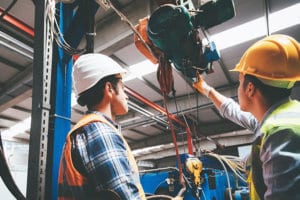Overcoming Five Challenges of Manufacturing in Mexico
06.25.19 Manufacturing in Mexico has been a smart business decision that companies have benefited from for decades. Although, as with any shifts in business, opening up operations in another country does come with its challenges. Fortunately, with the help of a Mexico shelter services provider, manufacturers can overcome these and create new opportunities for their business, employees, and customers.
Manufacturing in Mexico has been a smart business decision that companies have benefited from for decades. Although, as with any shifts in business, opening up operations in another country does come with its challenges. Fortunately, with the help of a Mexico shelter services provider, manufacturers can overcome these and create new opportunities for their business, employees, and customers.
Here are five of the top common challenges manufacturers face and solutions for each.
Challenge #1 – Selecting a Facility Location
Mexico is a large country and for someone who is unfamiliar with the landscape, the thought of choosing a facility site can be overwhelming. Businesses can alleviate some of this stress by partnering with a shelter provider that understands the lay of the land. Many companies who think about manufacturing in Mexico, consider a place closer to the border such as Tijuana. However, there are areas of Mexico in the more central region that are competitive in terms of space availability and cost.
As part of the site selection process, a shelter provider will present potential real estate options, help to review costs, risks, and benefits of each area and learn about what’s most important for the business. For companies that are considering nearshoring to Mexico, there’s also a built-in benefit of proximity to the U.S., especially when compared to manufacturing in China. Mexico is geographically closer, on the same or similar business hours, and costs far less in terms of time and travel expenses.
Read more: Essential Questions for Interviewing Mexico Shelter Service Providers.
Challenge #2 – Finding Qualified Labor
The talent of the workforce is likely one of the top considerations of manufacturing in Mexico. For many, the unknown of the labor market may be daunting. Who to hire and how to train employees may feel like a foreign concept, but the reality is that the same process that applies to U.S. facilities apply in Mexico. Mexico has a robust pool of skilled talent who have been educated and trained specifically to work in various manufacturing industries.
The wage savings are also a benefit for companies that want to open a facility. Mexico pays $2.80 an hour for entry-level work compared to the current U.S. minimum wage of $7.25. Plus, the regular workweek is 48 hours in Mexico compared to the typical 40 hours a week in the U.S., which equals more hours of productivity at a lower cost. Mexico workers are hired, onboarded, and trained following the same company guidelines as any other employee. A shelter company can help during the sourcing process and any other HR administrative tasks necessary.
Read more: What Makes Mexican Manufacturing a Viable Option for US Firms?
Challenge #3 – Compliance with Mexican Law
Manufacturing in Mexico requires compliance with Mexican laws, such as labor and employment, tax, environmental, social security, and immigration regulations. This is a complex subject and requires the appropriate time and attention to ensure everything is handled as it should be. Additionally, customs compliance is an area where companies may face risk from legal exposure.
A rapidly changing trade environment that includes import/export good classifications, tariffs, and other trade agreements means companies must be in the know about how their operations are handled in a foreign country under its own laws. This looming responsibility is simplified when working with a shelter company that is already well-versed and experienced in Mexican law and regulations. This kind of partnership helps to alleviate legal risks and other concerns regarding compliance.
Challenge #4 – Managing Quality Control
After choosing the ideal facility, training a workforce, and ensuring full compliance with all Mexican laws, a common challenge is maintaining quality control without production disruption. The process of quality assurance works the same as with other parts of manufacturing in Mexico. Full control of all assets, engineering, and supply chain remains solely in the hands of the manufacturer, while the shelter ensures all of the administrative functions vital for the business are handled correctly giving companies peace of mind to focus on their core competencies.
Due to this type of partnership, businesses that work with shelter companies can start manufacturing in nearly half the time as if they were to go through the process alone. Everything can work in tandem to set up operations efficiently and thoroughly.
Challenge #5– Uncovering Accurate Costs
Lastly, operating in a foreign country comes with the challenge of determining if costs are accurate and within what’s reasonable to pre-defined budgets. Without the right financial insight or understanding of the general changes caused by inflation, exchange rates, and market dynamics, this can place a burden on if and when a company decides to start expanding its operations. The more time, money, and stress involved in opening up a facility and making sure it runs smoothly, the more is lost from the production side.
Working with a shelter operator with decades of experience and the connections to deliver on preferential rates and first-hand knowledge of a changing marketplace helps to alleviate this pressure. It allows for a more transparent overview of costs and comparison when it comes to production expenses, employee payroll, vendor suppliers, and other factors and fees that are involved in any business operations.
A shelter partner steps in to support foreign companies overcome the common challenges of doing business in Mexico. It can help manufacturers save time, money, and headache when it comes to operating in a new country to ensure a smoother process and more seamless transition.
For more information regarding how IVEMSA can help your company expand operations in Mexico, contact us today.
